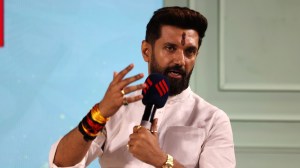Stay updated with the latest - Click here to follow us on Instagram
Two-hour session meant to deliberate on recommendations to Centre a flop show
For the past two years, ISC sessions have not sent their suggestions to the Government of India.
Even as two successive Indian Science Congress sessions, for the last two years, have failed to submit their recommendations to the Centre, a two-hour session of the 102nd Congress, that was meant to deliberate on recommendations focussing on the focal theme of science and technology in human development, turned out to be a damp squib as many sectional presidents were unable to give any concrete suggestion, Tuesday.
“It is the mandate of an Indian Science Congress to submit their recommendations to the Department of Science and Technology (DST). But The same should not happen this year. Most sectional presidents have said that they are not ready. Hence, I want all sectional presidents to draw up specific recommendations, so that we can prepare a comprehensive report and submit it to the government,” said Dr S B Nimse, chairman of the 102nd Indian Science Congress.
The sectional presidents were expected to make suggestions based on this year’s theme of science and technology for human development. But, while one sectional president said he was not familiar with what was expected of him, a few others spoke on issues not related to the theme.
Among those who were ready with their recommendations, a key suggestion that emerged was Prime Minister Narendra Modi’s ‘lab to land’ concept.
“Liaison between basic sciences and clinicians is at present poor in the country. Joint collaborations are the need of the hour, and research work must go from lab to land. Drugs and kits are expensive and out of the reach of poor. We expect scientists like us to focus on areas where one can develop technologies so that kits and medicines are cheaper,” said S Roy, sectional president of new biology.
Coordination between basic and applied scientists, creating an India-specific registry of diseases so that information is coordinated and focus on doorstep services by empowering the community were some other suggestions.
“It’s the first time that an Indian Science Congress had a session on science and technology in SAARC countries. We must continue this in the subsequent editions of the Congress. We must continue to take the spirit of SAARC ahead. We have a lot of potential in this region. The SAARC charter of 2008 also mentioned science and technology as a priority and we now need to take this forward,” said Sameer Dixit, country director and public health biomedical scientist, Centre for Molecular Dynamics, Nepal.







